Directed by Justine Triet and co-written by her and her longtime creative and romantic partner Arthur Harari, “Anatomy of a Fall” is a masterful examination of the complexities of the human psyche and of relationships that define us. The film tells the story of a celebrated author and lonely wife Sandra, played brilliantly by Sandra Hüller, whose world is turned upside down when her husband falls is found dead in the snow below their chalet. The investigation that follows brings to light a web of secrets, lies, and deceit that will keep audiences on the edge of their seats until the very end.
A Hitchcockian opening sequence sets the stage for the thriller that is to come, as the viewer is immediately drawn into the mysterious and off-putting world of the film’s protagonist. Sandra is in the middle of giving an interview to a literature student – but she is not really answering any of her questions, tries to charm her instead – when their conversation gets interrupted by unbearably loud music. As it turns out, Sandra’s husband Sam (Samuel Theis) is a fellow writer and musician who purposefully plays his ear piercing music on repeat. Somehow everything seems strange.
Shortly after they reschedule their interview for a later date and the student leaves, the couple’s young son (Milo Machado Graner) goes out for a walk. He is the one who eventually finds his father laying in a pool of blood. As the investigation into Sam’s death unfolds, the director expertly weaves together a complex narrative that digs deep into the motivations and inner turmoil of the characters. What happened? And probably, more importantly, why?
The plot progresses and we get drawn into the tumultuous world of the couple’s troubled marriage, where toxic behavior and individual struggles reign supreme. The wife is a master manipulator, deflecting attention from her own shortcomings by engaging in extramarital affairs and more. While her husband is a man who sabotages himself and bears the weight of impossible expectations he puts on his own shoulders, blaming all of it on his wife. The film invites us to ponder the nature of their relationship before the tragic accident that befell their son, Daniel, and made his vision partial. Were these two ever truly compatible, or were they always destined for this?

Source: The Daily Beast
Through the eyes of Daniel, the film explores the devastating impact of parental strife on a child’s psychological development. We witness the impossible position he finds himself in as he is forced to navigate the complexities of her mother’s trial, giving testimony and making sense of the chaos that suddenly surrounds him. His coming-of-age subplot raises important questions about parental responsibility and the effects of family conflict and secrets on a child’s well-being. Daniel’s character serves as a powerful reminder of the often overlooked and underestimated impact that adult struggles can have on the lives of young people. I could not help but think of the late-great child psychologist, Tamás Vekerdy’s words on the importance of clear communication with children even in difficult times. The notion that failing to include a child in the understanding of challenging situations can amplify their anxieties resonates deeply, as we watch Daniel’s world crumble around him. Adults may want to shield children by keeping them away from the truth, yet they only make them feel unsafe and confused by it.
Moreover, the film explores the delicate balance between truth and perception, as well as the role of the media in shaping public opinion (think: the talk show where guests weigh in on the trial “I think she killed her husband. I do not know why, but that is just more interesting than a suicide”). The performances are impeccable, with special mention going to Swann Arlaud for his sensitive portrayal of Sandra’s defense lawyer (who is also hopelessly in love with her), and Hüller for her nuanced and multi-layered performance as the film’s central character. Hüller’s performance deserves all the awards, and she would most probably get them if she was American.
All in all, “Anatomy of a Fall” is a gripping experience. While the opening shot may not be the strongest, and a touch more lyricism and poeticism could have added an extra layer of depth, the film is nonetheless a masterclass in storytelling and a must-see for fans of psychological thrillers and character-driven dramas. With its exploration of the complexities of the human experience and the quest for truth and justice, “Anatomy of a Fall” is a cinematic triumph. It is a reminder that in a world inundated with superficiality and superhero movies, quality and depth still hold immense value. The film’s exploration of psychological and social themes, rooted in classic genre influences, serves as an important commentary on the complexities of human relationships and the delicate balance of responsibility and accountability. I dare to go as far as to say, in its own right, “Anatomy of a Fall” surpasses its predecessors, including the esteemed “Anatomy of a Murder,” and emerges as a standout work of French cinema.
Catch „Anatomy of a Fall” at theaters or rent it on Apple TV+, Prime Video, VUDU and more.
~ by Dora Endre ~

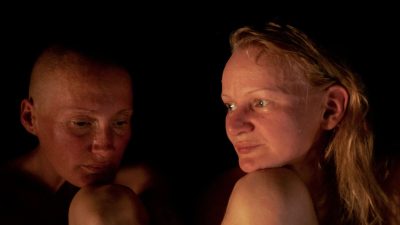
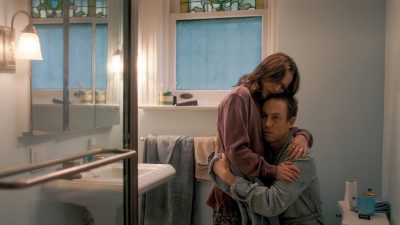
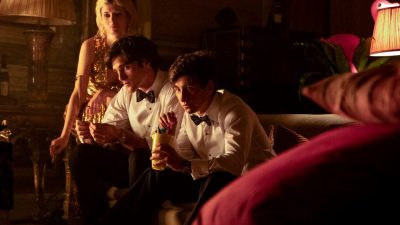





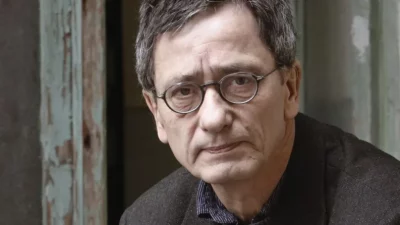




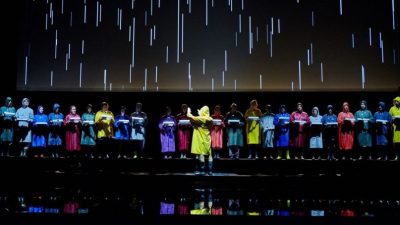





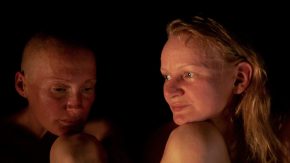




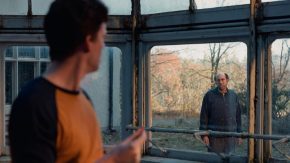
Comments